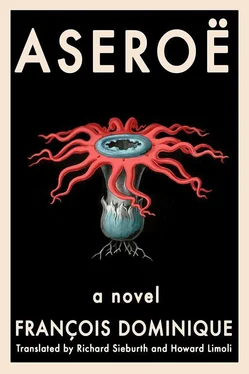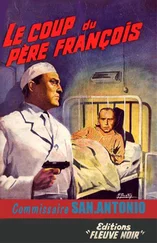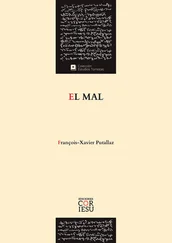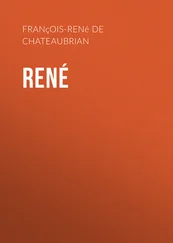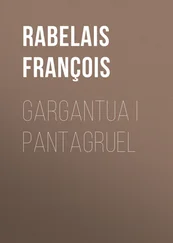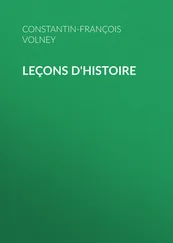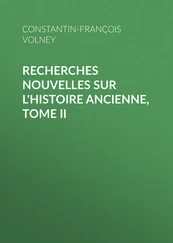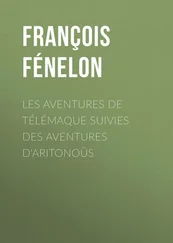François Dominique - Aseroë
Здесь есть возможность читать онлайн «François Dominique - Aseroë» весь текст электронной книги совершенно бесплатно (целиком полную версию без сокращений). В некоторых случаях можно слушать аудио, скачать через торрент в формате fb2 и присутствует краткое содержание. Город: New York, Год выпуска: 2020, ISBN: 2020, Издательство: Bellevue Literary Press, Жанр: Современная проза, на английском языке. Описание произведения, (предисловие) а так же отзывы посетителей доступны на портале библиотеки ЛибКат.
- Название:Aseroë
- Автор:
- Издательство:Bellevue Literary Press
- Жанр:
- Год:2020
- Город:New York
- ISBN:978-1-942658-78-8
- Рейтинг книги:5 / 5. Голосов: 1
-
Избранное:Добавить в избранное
- Отзывы:
-
Ваша оценка:
- 100
- 1
- 2
- 3
- 4
- 5
Aseroë: краткое содержание, описание и аннотация
Предлагаем к чтению аннотацию, описание, краткое содержание или предисловие (зависит от того, что написал сам автор книги «Aseroë»). Если вы не нашли необходимую информацию о книге — напишите в комментариях, мы постараемся отыскать её.
Aseroë — читать онлайн бесплатно полную книгу (весь текст) целиком
Ниже представлен текст книги, разбитый по страницам. Система сохранения места последней прочитанной страницы, позволяет с удобством читать онлайн бесплатно книгу «Aseroë», без необходимости каждый раз заново искать на чём Вы остановились. Поставьте закладку, и сможете в любой момент перейти на страницу, на которой закончили чтение.
Интервал:
Закладка:
______
The nameless arcanum is not attached to the number it announces. Unbeknownst to me, it lurks within the twelve chapters of this book. Coming from without, where books are humiliated by being deliberately ignored, it already stalks a child I once loved and indirectly attacks what I hold most dear. This morning, July 21, I’m waiting for the boy in the yellow sweater, holding a bouquet of daffodils in honor of my birthday.
11

Aseroë
IF, UNBEKNOWNST TO ME, any attentive reader were to venture to gaze intently at the white page I wish to offer, if any reader were to make an effort to probe its apparent emptiness with all the passion required by an undertaking on which this reader’s life would suddenly depend, would I at last be satisfied? If my project—come to maturity some time ago—at last found its completion in the adherence of this ideal reader, then a path leading to the Other Language might finally open, a path paved with desire and longing, capable of carrying both of us into the land of the marvelous, into a never-ending story.
For some time, I have been envisaging some space to come that would be devoid of all inscription, a space where only the gaze of the other would manage to embody my thoughts, where the precise meaning of everything I had wished to say would depend on the other’s discerning eye. Such a work—immaculate, but certainly not innocent—would be empty enough and sufficiently generous to satisfy every expectation and to exceed anything I myself might have been capable of imagining while inventing this series of ineffectual little tales.
From the very outset, the project I had in mind involved the writing of a LIBER MUTUS—that “silent book” whose mysterious and vacant meaning was the only grail that ever seemed worthy of my pursuit, that unknown book that offers its pages wide open to whomever might want to approach them without losing courage, without averting their eyes from the dizzying surface where nothing lies written prior to the moment of its reading. A foolhardy project, of course, based as it is on the dream of a virgin book whose inviolate text would be released only by the act of reading and whose resultant lines and paragraphs would follow the movements of a thought process until then held captive, its pages animated only by the generous gaze of a reader prepared to see in them what no one before had suspected.
This book is very ancient—and very modern. As it makes its way ashore, it creates flecks of black-and-white foam (distant cries from the past, veiled allusions to archaic practices of kissing, of killing, of saying farewell). It advances with the whole wave swell of this past bearing it forward, its breakers rolling in with the collective crash of forgotten lives, resounding with all that is alive and joyous, all that is tragic or inopportune—the roar of the hosts of the dead, their persistent customs, their frivolous ways, their abandoned rituals, their deposed sovereigns, their trails of tears, their words of love echoing on long after their bodies have disappeared.
The author-reader-witness-hero of this book invests its words with the power to speak for all time, unwilling to shy away from what the future promises or from the eventual circumstances of their own death. This absolute knowledge lies beyond reach, for the presumptuous reader would have to agree to read the same blank pages over and over without exhausting their emptiness; the reader would have to submit to the risk of a reading that was different on each occasion, until the reader’s existence became one with the vanity of the book, which, ceasing at that point to provide satisfaction, would precipitate the reader’s fall.
The reader’s eyes will grow weary; the reader will dread this book that is without end and that bears no title. The tale, thought out and unfolded in the mind of the ideal reader, now slips away. The reader’s eyes henceforth find themselves facing blank pages, empty except for the occasional bits of crabbed handwriting in the margins—tiny tracks, filled with gaps, like cutoff sentences. ASER… wou… ang… liv … Thus translated by the reader:
ASEROË wounded angel lives.
Before the book apparently comes to a close—and it’s a big book, judging by the thickness of the volume, made up as it is of so many blank pages (or “beauties,” as the typographers call them)—a torn sheet emerges from its depths, of which only a lateral fragment remains, featuring an inner margin on which the words ang … and liv … are inscribed, as well as further phrases that nobody has signed.
We see this tear sheet, far older than the book that contains it. We hear laughter, cries, weeping, all these noises then sucked up by silence and scattered this way and that, like seeds strewn on the cold, desolate ground. There, in the night of the dead, lie models without portraits, the folly of forgotten promises, and the errant words that now and then remind us of the early sorrows of little children.
12

Aseroë
WHAT IS THE VOCATION of the dead? This crazy, answerless question would be the fruit of the ordeal that I first imposed on myself upon discovering this fragment from The Testament of Orpheus:
THOU SHALT FIND A SPRING TO THE LEFT AND A WHITE CYPRESS. TAKE CARE NOT TO APPROACH THIS SPRING. THOU SHALT FIND ANOTHER FROM WHENCE FLOW THE COOL WATERS OF THE LAKE OF MEMORY. BEFORE IT STAND THE GUARDIANS. AND THOU SHALT SAY UNTO THEM…
From the first time I read this, I vowed to explore the path toward the Other Language, to discover the instructions, the passwords without which Orpheus could not have spoken to the guardians of the forbidden threshold. To bestow life upon the ellipses following the words SAY UNTO THEM, to pass through the portal without loss of life or voice—such, from the very outset, was my dearest wish. In short, to become as Orpheus, to obtain that special dispensation that would allow me to pass through life into death, singing. And what’s more, I nurtured the insane hope that upon my return journey, I would not yield to the blackmail of the lament that trailed behind me. I would not turn around before I had reached broad daylight. I would carry the Unknown Language back with me.
However mad my ambitions, I wasn’t oblivious to the dire consequences of such a project—to whose repeated failures the bemused disdain of my contemporaries could certainly be added. But what did it matter? I was not dealing with maenads. To experience failure and disdain was a small price to pay for the adventure that awaited me.
But there was a more serious objection that came to mind: “The gods are unfamiliar to you; you wouldn’t even know how to begin to invoke their favor.” And what about the inevitable likelihood that I would entirely forget everything I had seen beyond the forbidden threshold, once I returned safe and sound? And the nagging question: “Why hurl yourself into the abyss? There will be ample occasion for that when it comes to be your turn.”
Every day I would examine my blank sheet of paper, then gaze at the horizon. I scanned the faces I knew; I spied on others unknown to me. I awaited messages that might be arriving from elsewhere; I awaited a special herald bearing a sign that might arise from daily events; I awaited a lover’s secret. There was nothing: I could discover no special indication that my expectations might be fulfilled. The words that followed the THOU SHALT SAY in The Testament of Orpheus refused to appear. The ellipses remained: THE COOL WATERS OF THE LAKE OF MEMORY…. THE GUARDIANS…. THOU SHALT SAY… To say, to sing, to scream out—yes—but for whom or what? Innocence is no longer permitted once memory is involved: to refuse forgetfulness is, by the same token, to restore the stifled cries of all those millions of senseless lives whose names are now gone. Is their list on file somewhere? If so, what echo can reach back through all this irreparable distress? At most it might produce the whisper of numberless victims, a murmur of all those legions who lie discarded. And who was I to imagine myself frolicking about in happy song, playing at being inspired by logos and lyre? Once I had passed over the threshold, the song I would discover would not be divine: it would merely be the song of unheard screams, of silence.
Читать дальшеИнтервал:
Закладка:
Похожие книги на «Aseroë»
Представляем Вашему вниманию похожие книги на «Aseroë» списком для выбора. Мы отобрали схожую по названию и смыслу литературу в надежде предоставить читателям больше вариантов отыскать новые, интересные, ещё непрочитанные произведения.
Обсуждение, отзывы о книге «Aseroë» и просто собственные мнения читателей. Оставьте ваши комментарии, напишите, что Вы думаете о произведении, его смысле или главных героях. Укажите что конкретно понравилось, а что нет, и почему Вы так считаете.
